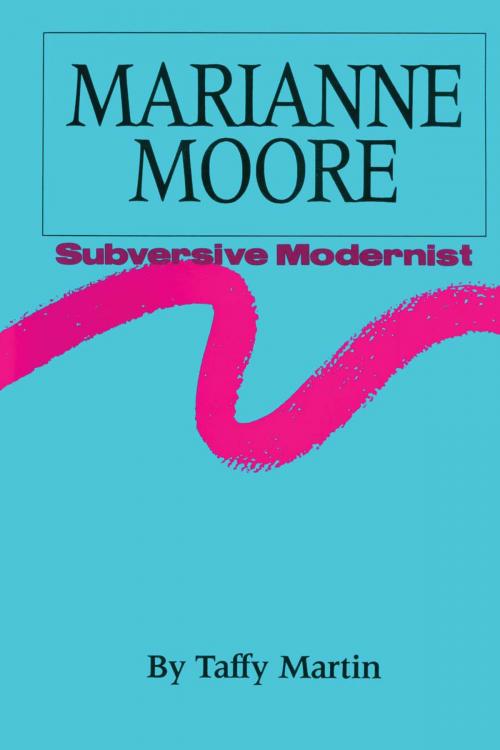Marianne Moore, Subversive Modernist
Fiction & Literature, Literary Theory & Criticism, Feminist Criticism, Poetry History & Criticism, American| Author: | Taffy Martin | ISBN: | 9781477301180 |
| Publisher: | University of Texas Press | Publication: | August 27, 2014 |
| Imprint: | University of Texas Press | Language: | English |
| Author: | Taffy Martin |
| ISBN: | 9781477301180 |
| Publisher: | University of Texas Press |
| Publication: | August 27, 2014 |
| Imprint: | University of Texas Press |
| Language: | English |
Myth and misconception have obstructed a clear understanding of the poetry and person of Marianne Moore. In this groundbreaking study, Taffy Martin delves beneath the layers of myth and recaptures the excitement that Moore's contemporaries, particularly William Carlos Williams, felt when they encountered her poetry. She reveals that, far from being a stanch upholder of Modernist order and stasis, Moore continually undermines the stability of her own medium, language. Unlike the writings of other Modernist poets, such as T. S. Eliot, who tried to create islands of order in the seas of twentieth-century fragmentation, Moore's work shows surprising awareness of that fragmentation. In this way, she anticipates the thematic preoccupation of Postmodernist writers and critics. In Marianne Moore, Subversive Modernist, Taffy Martin combines traditional scholarship and contemporary critical theory to create a feminist reading of one of the twentieth century's most difficult poets. In so doing, she places Moore in the tradition of Modernism, defines Moore's quarrels with it, and thus produces a broader understanding of both the poet and the movement. Drawing on Moore's unpublished correspondence, her reading notebooks, and her workbooks, as well as feminist criticism's attention to writers who elude traditional critical approaches, this excellent study provides much-needed insights into the Modernism, life, and art of Marianne Moore.
Myth and misconception have obstructed a clear understanding of the poetry and person of Marianne Moore. In this groundbreaking study, Taffy Martin delves beneath the layers of myth and recaptures the excitement that Moore's contemporaries, particularly William Carlos Williams, felt when they encountered her poetry. She reveals that, far from being a stanch upholder of Modernist order and stasis, Moore continually undermines the stability of her own medium, language. Unlike the writings of other Modernist poets, such as T. S. Eliot, who tried to create islands of order in the seas of twentieth-century fragmentation, Moore's work shows surprising awareness of that fragmentation. In this way, she anticipates the thematic preoccupation of Postmodernist writers and critics. In Marianne Moore, Subversive Modernist, Taffy Martin combines traditional scholarship and contemporary critical theory to create a feminist reading of one of the twentieth century's most difficult poets. In so doing, she places Moore in the tradition of Modernism, defines Moore's quarrels with it, and thus produces a broader understanding of both the poet and the movement. Drawing on Moore's unpublished correspondence, her reading notebooks, and her workbooks, as well as feminist criticism's attention to writers who elude traditional critical approaches, this excellent study provides much-needed insights into the Modernism, life, and art of Marianne Moore.















